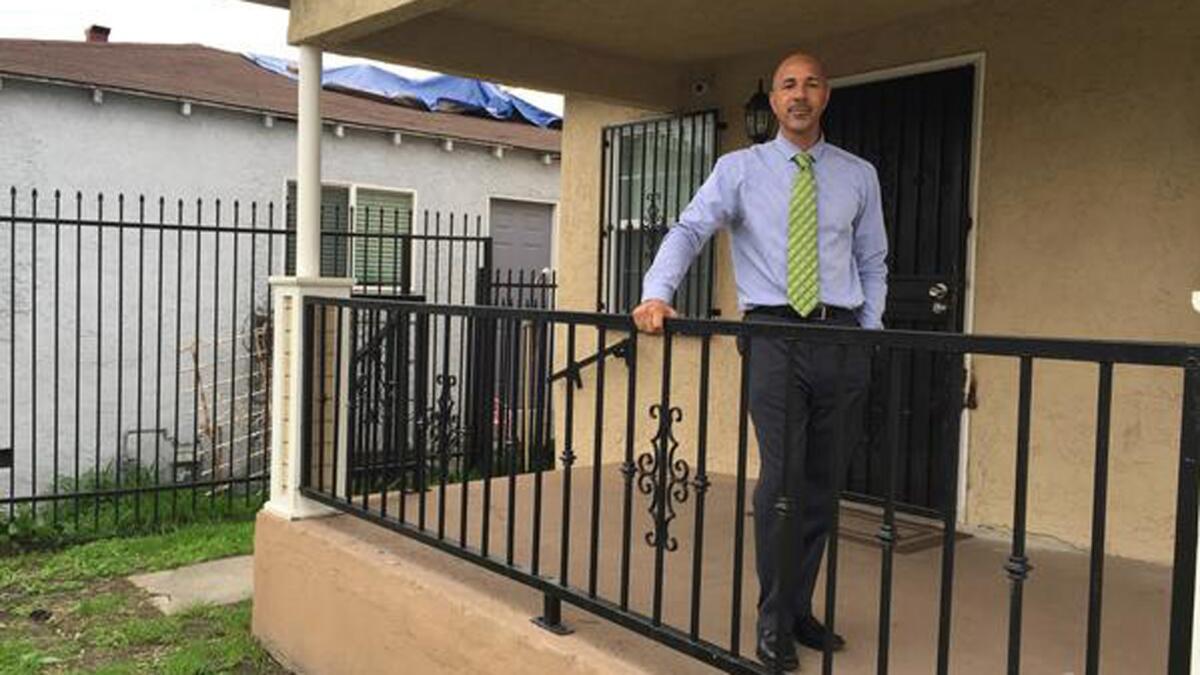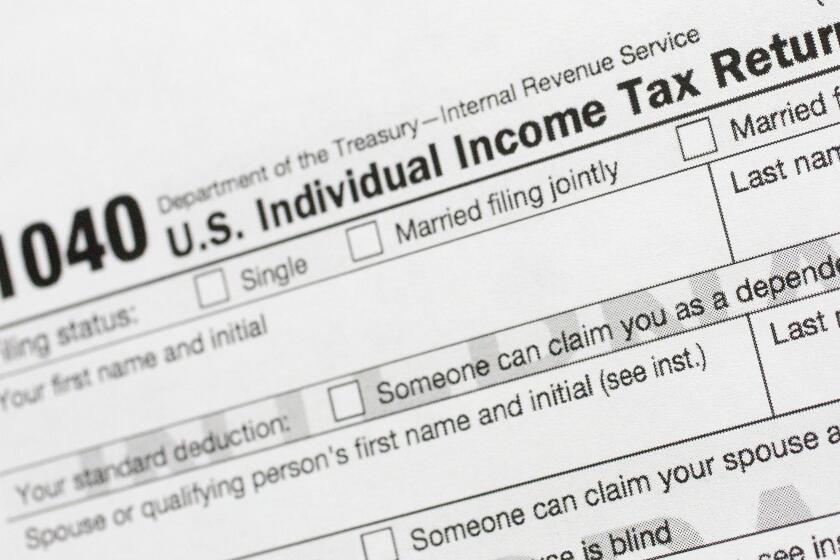Despite helping hand from L.A., drug offenders would face obstacles in cannabis industry

As California’s legal cannabis industry heats up, officials in Los Angeles and other cities say they want to make sure early players in the pot business who were selling it when it was still illegal aren’t pushed out of the market.
In Los Angeles and Oakland, city cannabis rules provide for so-called social-equity programs, which provide a leg up to marijuana business license applicants who either have been convicted of a marijuana crime or live in neighborhoods disproportionately affected by marijuana arrests.
But many of the entrepreneurs who might benefit from those programs would face a huge obstacle: Most banks won’t open accounts for marijuana businesses, and the few institutions that are willing to do so are likely to refuse to serve businesses whose owners or managers have criminal records, even if those records are for selling marijuana.
Though legal for recreational or medicinal use in 29 states, marijuana remains illegal under federal law, making most banks and credit unions — which answer to federal regulators — unwilling to open even basic checking accounts for marijuana growers or sellers.
Institutions that do work with the cannabis industry must follow a strict set of federal guidelines that call for extra financial reporting and research into the backgrounds of cannabis business owners. Those guidelines suggest providing a bank account to a cannabis business owned by a drug convict would be a regulatory red flag.
Being locked out of the banking system could be a big setback for those businesses, negating much of the benefit of the social-equity programs, said Virgil Grant, a local cannabis entrepreneur and one of the proponents of L.A.’s program.
“It puts us at a disadvantage just coming out of the gate,” said Grant, who co-owns South Los Angeles medical marijuana dispensary Medex and has state and federal drug convictions on his record. “We’d never be able to grow past a mom-and-pop business. We’d be stuck in that realm.”
Without bank accounts, marijuana businesses are forced to handle large bundles of cash to buy supplies, pay employees and even to make tax payments. Grant and other cannabis business owners say the extra time and precautions necessary when dealing with all that cash add up to thousands of dollars in added costs.
For businesses able to get accounts, those savings amount to a big advantage, Grant said.
“It’s about efficiency and time, which is money,” he said. “A business with a bank account, they would make more money and save more money, and we’d lose money because of inefficiency. It would be detrimental to us as business owners not to be able to be afforded that same opportunity.”
But executives at banks and credit unions in California, Washington and Colorado that offer accounts to marijuana businesses — a stance that already puts them outside of the banking mainstream — say that even for them, a criminal record would make it more difficult to open an account.
“I think it would make it tougher in an already tough environment,” said Neil Zick, chief executive at Twin City Bank in Longview, Wash. “It would definitely be another deterrent on the part of the bank.”
Sundie Seefried, chief executive of Partner Colorado Credit Union, which openly works with cannabis businesses, said she has opened an account for a marijuana entrepreneur with a record — but that it was a judgment call that could have gone the other way.
“I personally discussed the situation, assessed all the facts and made the decision to bank this company even with the history,” Seefried said. “However, I could have just as easily said no. … If I am placing my financial institution at risk, I am going to select very carefully.”
An executive at an L.A.-area credit union that works with marijuana businesses was even more direct. The executive, who spoke to The Times on the condition that he and his institution not be named, said his credit union would under no circumstances open an account for a business owned or managed by someone with a criminal record.
“They took a chance before, and they might take a chance again,” the executive said. “If someone has a criminal record, it doesn’t give me confidence that their business is going to be run without infractions going forward.”
Both the L.A. credit union executive and Seefried pointed to guidelines from the federal Financial Crimes Enforcement Network, or FinCEN, a Treasury Department bureau that combats money laundering and other illicit uses of the financial system.
While marijuana is still considered an illegal drug under federal law, those guidelines do not explicitly prohibit a bank from serving a cannabis business. However, if a bank finds that the business’s owners or managers have criminal records, it is considered a red flag that should prompt further scrutiny by the bank. Violations of the guidelines could subject the bank to fines or even stricter penalties.
Los Angeles City Council President Herb Wesson, a key backer of the cannabis social equity program, said he doesn’t have a good solution to this issue yet, though he said he’s hopeful the banking industry will come around as the cannabis industry grows.
One solution he’s floated is the creation of a city-owned bank — an idea California officials also are mulling but on a statewide basis. A public bank, the thinking goes, would be able to provide basic banking services to cannabis businesses and support other public priorities with less federal oversight.
Though Grant and others in the industry are hopeful about that idea, the creation of such a bank is far from a sure thing. What’s more, adding cannabis-industry services as an institutional priority could make establishment of such a bank even trickier. But Wesson noted Wednesday that cannabis is not the only reason to create a public bank. Other purposes could include financing affordable housing.
“It’s kinda percolated to the top, but it’s not what’s driving this,” he said.
He also said he believes banks should not be able to deny basic services to cannabis businesses, regardless of any criminal history of their owners or managers.
“What we’re trying to do is right a wrong, trying to create opportunities for individuals who do not have opportunities,” he said. “I’m not going to tell you how to invest your money or who you have to make a loan to, but I don’t think you should be in the position of picking and choosing who can open an account. I’d make sure we have a hearing on that issue.”
Follow me: @jrkoren
More to Read
Inside the business of entertainment
The Wide Shot brings you news, analysis and insights on everything from streaming wars to production — and what it all means for the future.
You may occasionally receive promotional content from the Los Angeles Times.











